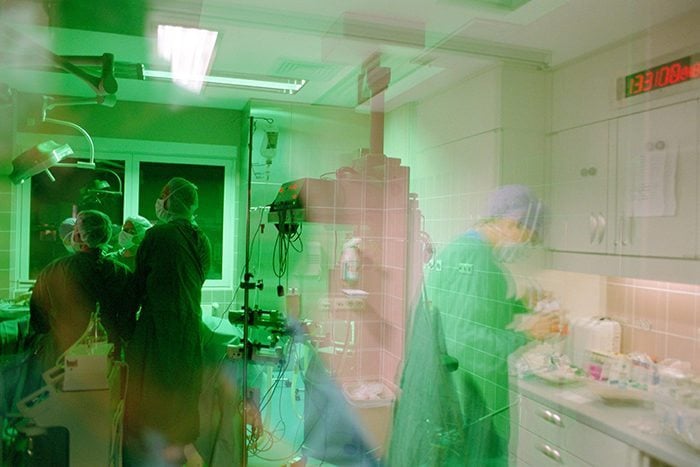Industry Overview: Field Service in Medical/Healthcare
May 20, 2016 • Features • Management • Medical • healthcare • IoT • Servitization
Field service in the medical industry is complex and challenging. Having recently attended the two key events - Field Service Medical and Field Service Medical Europe - we look at some of the key challenges service directors working in this vertical face...
It is an often quoted maxim that when it comes to field service highly disparate companies from completely separate verticals can face many of the same pain points. Within the niche of the medical industry these challenges remain but there are also additional hurdles that can make service delivery even harder.
Fortunately for those working within medical field service, global conference producers WBR sit right at the heart of the industry hosting two key events, one each side of the Atlantic to help foster knowledge sharing within the community.
The first of these Field Service Medical was held in San Diego in February and in the Californian sunshine the debate was lively with a highly senior audience coming together and putting commercial rivalries aside to address some of the key challenges within the sector.
"As with the wider field service sector, technology has a huge role to play in enhancing the levels of service companies can provide"
Thus a number of conversations centred around integration, with FieldOne’s Ted Steffner’s presentation on the topic ‘Integrate, Don’t isolate’ being a particular highlight for a number of delegates.
Another specific focus of the medical sector is that the sale of consumables within the industry is perhaps disproportionally higher here than in other verticals such as manufacturing. Largely driven by the clean room environment, this leads to an even greater pressure to ensure good inventory management and as well as a number of presentations around this topic, Stacey Blakely, Service Sales Director, Hill-Rom led an excellent interactive round table that provided plenty of food for thought and helped drive the conversation.
Indeed, the sale of consumables is viewed very much as a key part of service revenue still within the medical sector and in some respects the thought processes of many within the vertical is still focused on the traditional break-fix approach to field service.
"The sale of consumables is viewed very as a key part of service revenue still within the medical sector and in some respects the thought processes of many within the vertical is still focused on the traditional break-fix approach to field service"
Whilst in many other verticals the topic of servitization and phrases such as through-life-cycle service, advanced services and outcome based solutions are becoming familiar concepts, for many within the medical industry it remains a new concept which faces the dual barriers of both a relenting and strong traditional approach to revenue through consumables, as well as the additional challenges of fully implementing IoT solutions due to the aforementioned fears around security fuelled by the need to protect patient data.
However, whilst in some areas the medical industry maybe a touch behind the broader field service sector, it is also home to some truly innovative thinkers and service leaders.
One such person is Alec Pinto, Associate Director of Qiagen who gave a fantastic presentation on maximising utilisation. Pinto and his colleagues have done some exceptional work on developing mathematical modelling to truly define their available resources in terms of man hours, and then redistributing their workforce accordingly to improve customer satisfaction levels, efficiency levels and engineer engagement.
“There is an overall theme of companies being more proactive and less reactive across the sector at the moment” - Greg Aston, WBR
“There is an overall theme of companies being more proactive and less reactive across the sector at the moment,” commented Greg Ashton, Conference Producer for WBR at the end of Field Service Medical Europe.
“People have been thinking about it for a long time but now the technology is at a place now where there is a fusion of people and technology all arriving together at a critical point.”
“It’s really the solution providers that are driving it forward, the solutions themselves have improved a lot over the last year,” he added.





















 Field Service News is published by 1927 Media Ltd, an independent publisher whose sole focus is on the field service sector. As such our entire resources are focused on helping drive the field service sector forwards and aiming to best serve our industry through honest, incisive and innovative media coverage of the global field service sector.
Field Service News is published by 1927 Media Ltd, an independent publisher whose sole focus is on the field service sector. As such our entire resources are focused on helping drive the field service sector forwards and aiming to best serve our industry through honest, incisive and innovative media coverage of the global field service sector.
Leave a Reply